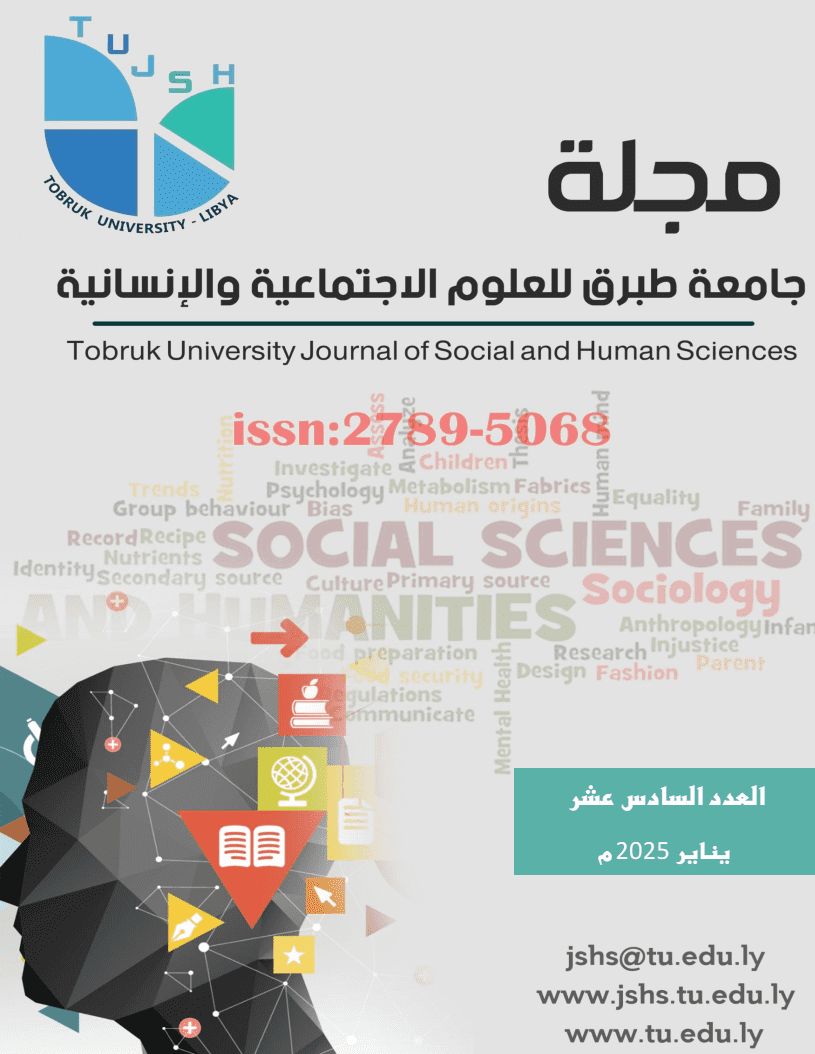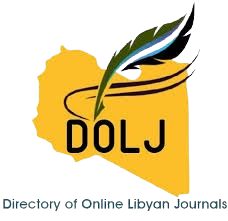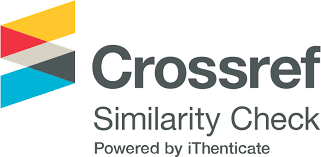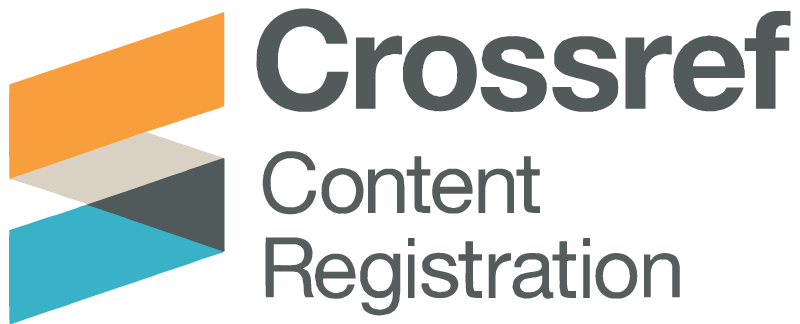استراتيجيات الذكاء الاصطناعي لخلق بيئة تعليم عالي شاملة للطلاب ذوي الإعاقة
DOI:
https://doi.org/10.64516/0fzrmq87الكلمات المفتاحية:
الذكاء الاصطناعي ، ذوي الإعاقة، الروبوتات الذكية، ليبياالملخص
تستعرض هذه الدراسة الاستخدام الاستراتيجي للذكاء الاصطناعي (AI) لتوفير بيئة شاملة للطلاب ذوي الإعاقات في التعليم العالي. يناقش البحث المزايا والعيوب المحتملة للشمولة المعتمدة على الذكاء الاصطناعي من خلال فحص تطبيقات الذكاء الاصطناعي مثل أدوات الوصول التلقائي، ومنصات التعلم التكيفية، وأنظمة الدعم المخصصة. توفر النتائج أساسًا للمؤسسات لاستخدام الذكاء الاصطناعي لتحسين العدالة التعليمية من خلال تسليط الضوء على كل من النتائج المشجعة وفرص التطوير
التنزيلات
المراجع
1. Miller, D. AI-Driven Solutions for Accessible Learning in Higher Education. Journal of Educational Technology, 2022, 12(3), 45-59.
2. Leonard, F., & Lee, J. Building Inclusive Classrooms: How AI Supports Students with Disabilities. International Journal of Disability and Education, 2020, 16(2), 83-97.
3. Amani Abdelkader Shaaban. Artificial Intelligence and Its Applications in Higher Education. Journal of Education, Sohag University 2021, 4(2), 56-78
4. Edwards, P. The Ethics of AI and Its Impact on Accessibility in Higher Education. Journal of Technology and Inclusion, 2020, 8(1), 101-113.
5. Smith, G., & Green, N.. The Role of AI in Supporting Students with Disabilities: Challenges and Opportunities, 2019, 15(4), 134-148.
6. Jaber, D & Aziz, A. AI for Inclusive Education: Addressing Accessibility Challenges for Students with Disabilities in Higher Learning, International Journal of Educational Technology, 2020, 11(1), 1-10.
7. Ben Hkouma M. et.al., Developing Standards to Ensure the Quality of Educational Programs and Services for Individuals with Autism Spectrum Disorder in Libya, Mosul Nursing Journal, Volume: 11, Issue: 2, July, 2023. DOI: https://doi.org/10.33899/mjn.2023.180606
8. Makari, Nihad Muneer Jad and Agwa, Mohamed Said Said, The Reality of Employing AI Applications and Its Challenges in the Rehabilitation of Children with Special Needs (Autism Spectrum Disorder – Intellectual Disability), Journal of Scientific Research in Education, Ain Shams University, 2023, 6(2): 113-127.
9. George, Luger, Artificial Intelligence: Challenges and Opportunities, 7th edition, Pearson Education, London, 2020..
10. Baker, R. S., & Inventado, P. S. Educational Data Mining and Learning Analytics. Journal of Educational Data Mining, 2017, 6(1), 1-10.
11. Ken, P., & Chan, T.. Artificial Intelligence in Higher Education: Enhancing Accessibility for Students with Disabilities. Computers in Human Behavior, 207(115): 242-257.
12. Al-Abdali, Majed (2020). Artificial Intelligence: Concepts and Applications. Arab Scientific Publishers, Amman, Jordan
13. Seeman, J. W. Solutions for Accessible and Inclusive Education. International Journal of Inclusive Education, 2019, 23(7), 686-701
التنزيلات
منشور
النسخ
- 12-07-2025 (2)
- 02-01-2025 (1)
إصدار
القسم
الرخصة
الحقوق الفكرية (c) 2025 د. مصطفى أحمد بن حكومة، عبد القادر حسين الشريف، Hanan Sobhi Obaid، Raja Hamad Hadath Al-Abdeli (Autor/in)

هذا العمل مرخص بموجب Creative Commons Attribution 4.0 International License.












